Leird Farms: Marketing the chicken, not the egg
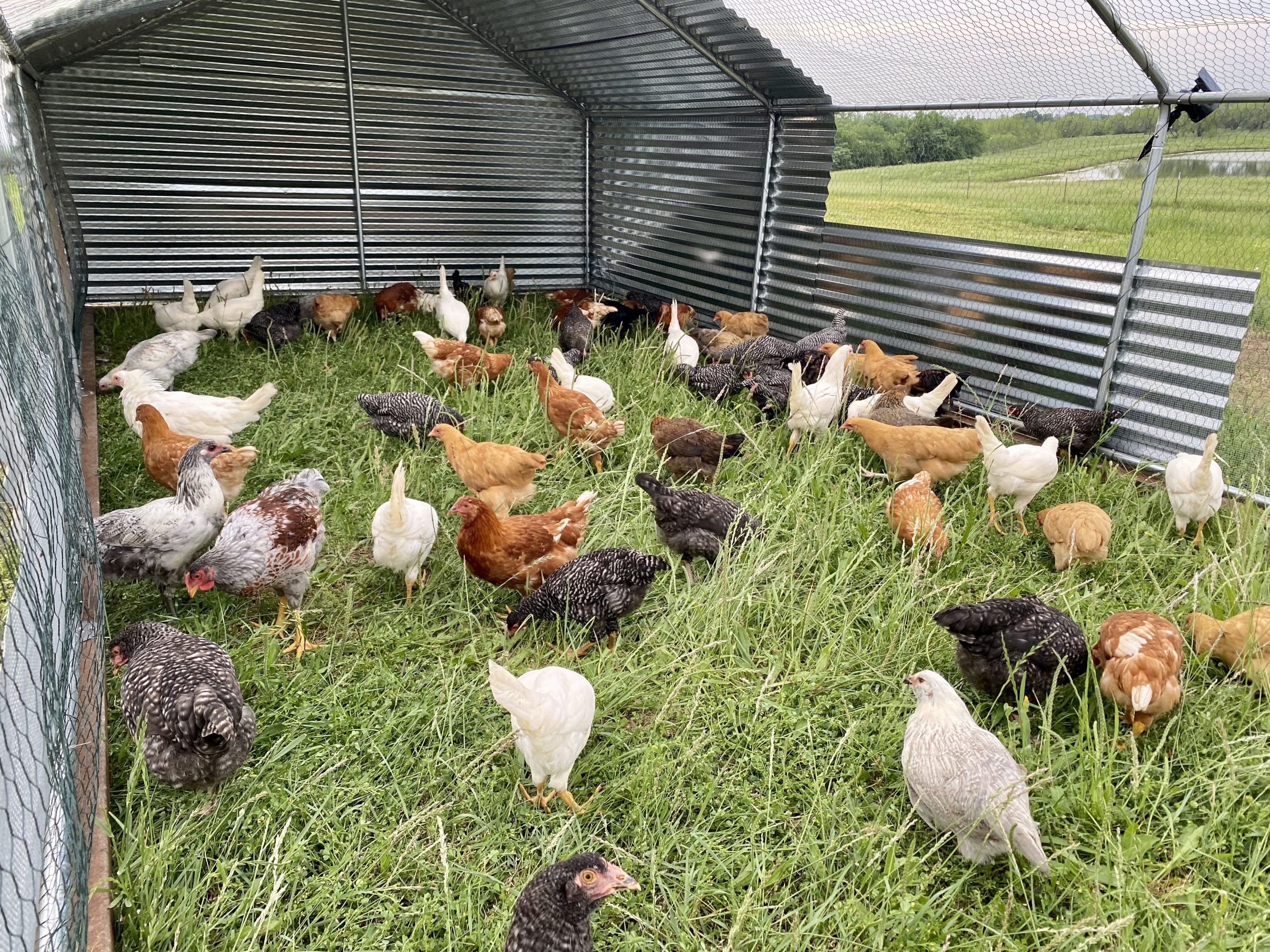
When Corey Leird refers to his “girls,” it is important to clarify if he is talking about his wife, Racheal, and their two daughters Mayley and Mabel, or the hundreds of pullets he is raising in his backyard.
Corey and his family, located near Sherman, Texas, have always had a few chickens pecking around their property, so he was very familiar with owning and raising them. However, he went out on a limb one day in 2022, when he bought 60 Red Star chicks with the intent of raising them to selling eggs for some extra income.
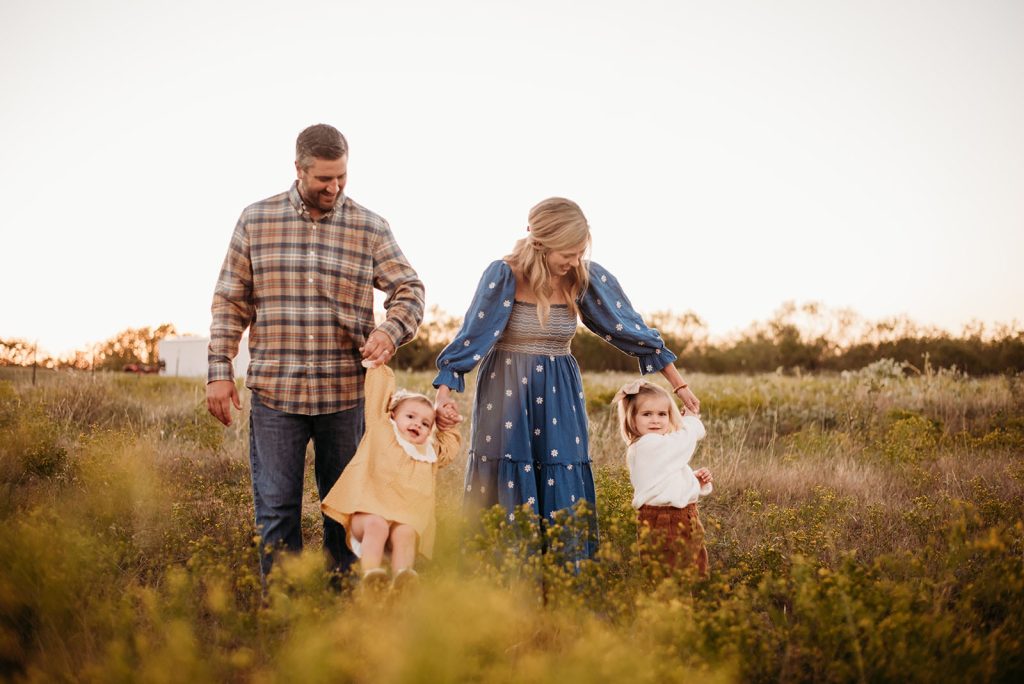
“They’re just fun and endless entertainment, so why not see if I can start selling eggs?” Corey said. “When the chicks arrived, I will never forget the excitement I felt and the challenges I faced for the future caring for these 60 girls. The turning point though, was when my daughter, Mayley, held a baby chick for the first time and something just sparked in me that this is my passion.”
Different light
As the chicks grew, Corey began to see the backyard bird industry in a different light and wondered if he should adjust his business plan to raising pullets—which are young female chickens—until they are ready to start laying eggs and sell them to other chicken owners.
An 18-week-old hen is ideal and valuable for backyard chicken owners because they have made it past the vulnerable chick phase and are in their prime for productivity. The idea was fully hatched in Corey’s mind when he established Leird Farms LLC at the end of 2022 on the large acreage where they live and the Leirds began marketing pullets to buyers.
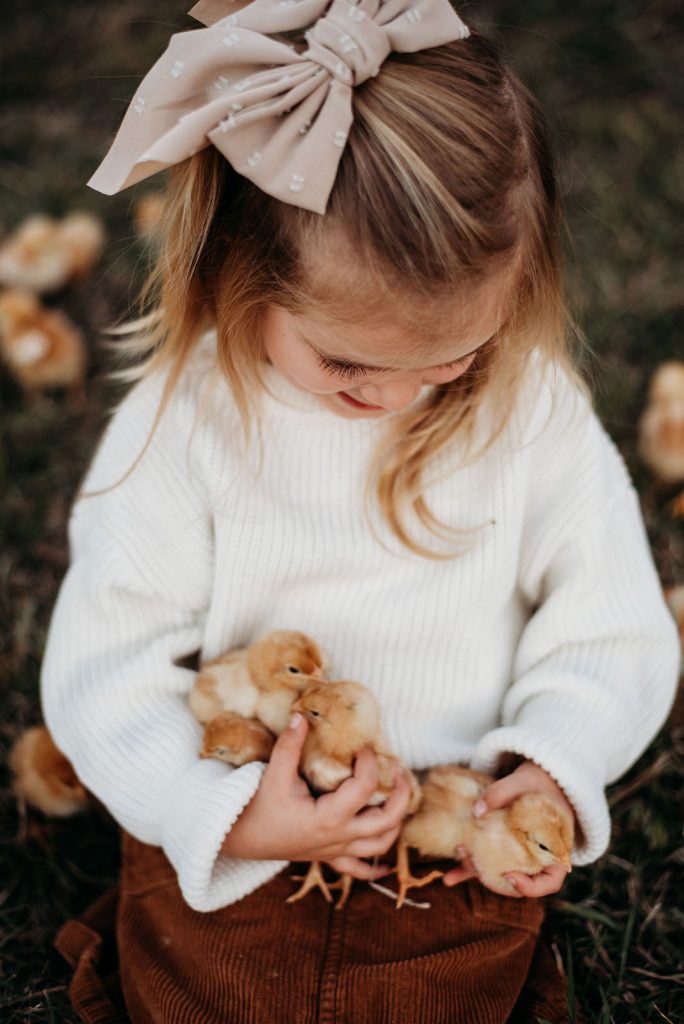
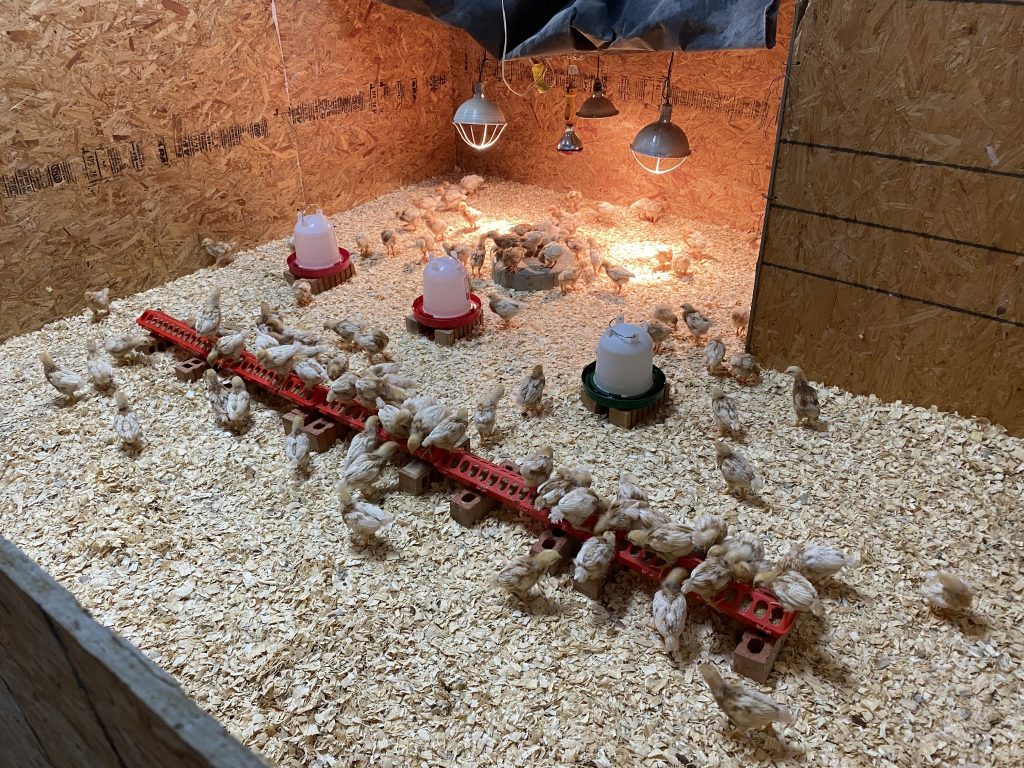
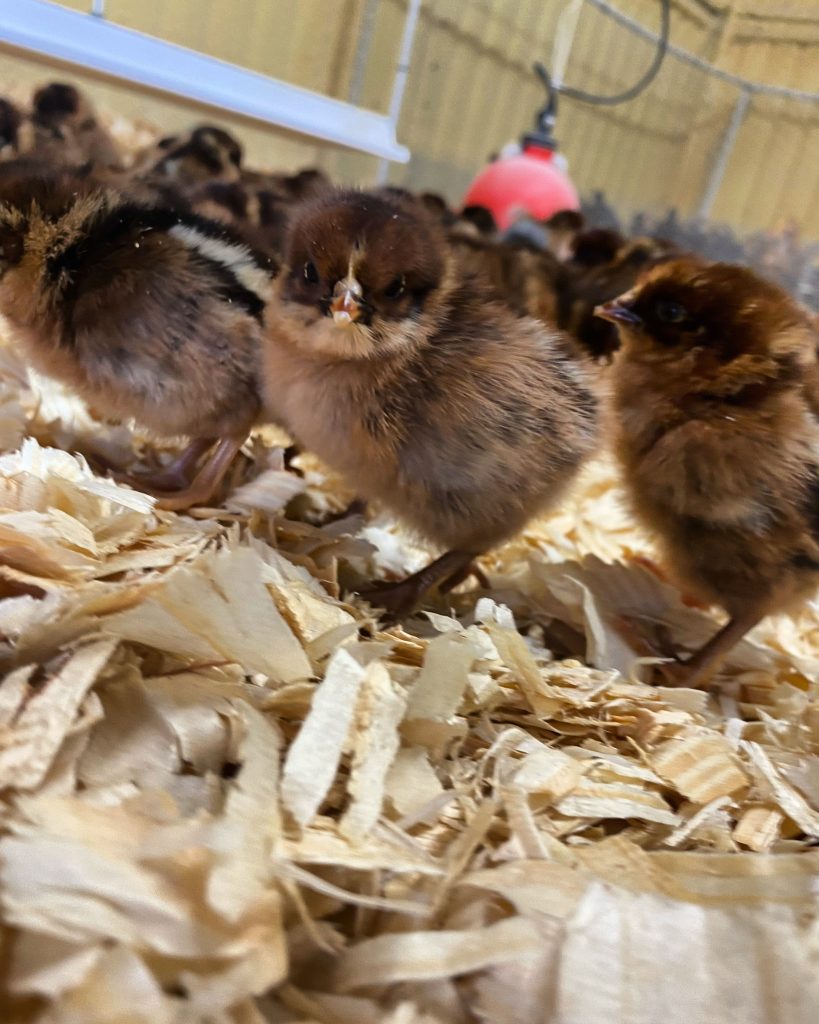
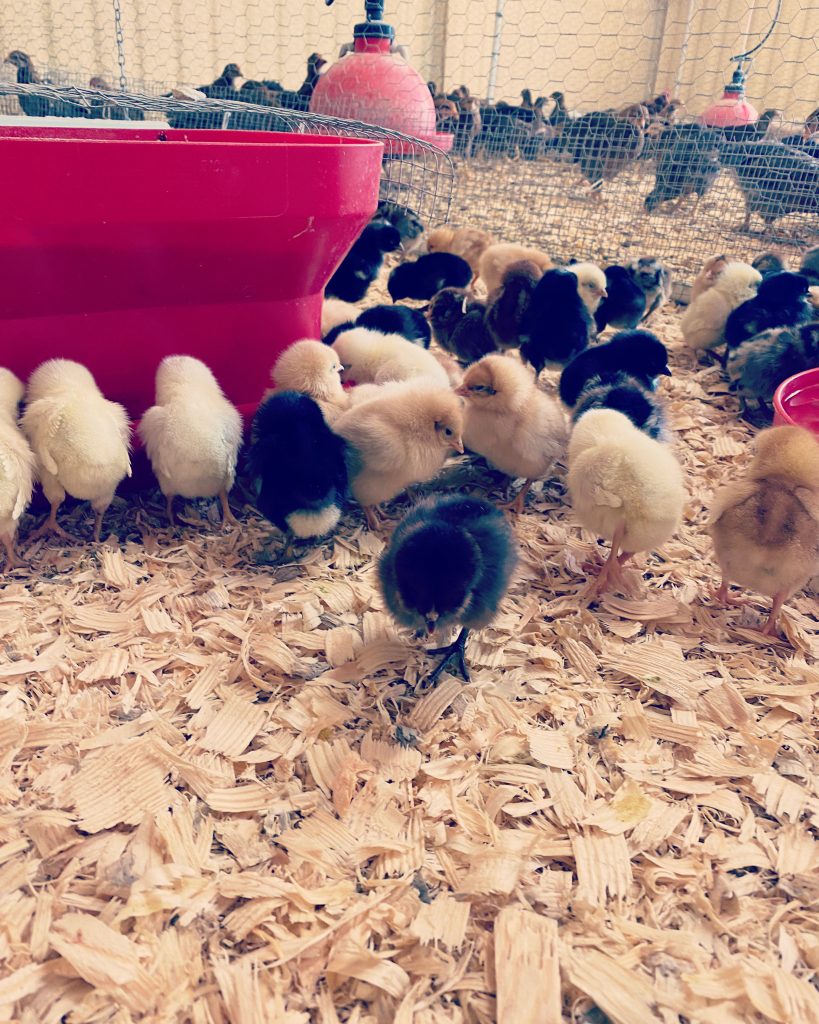
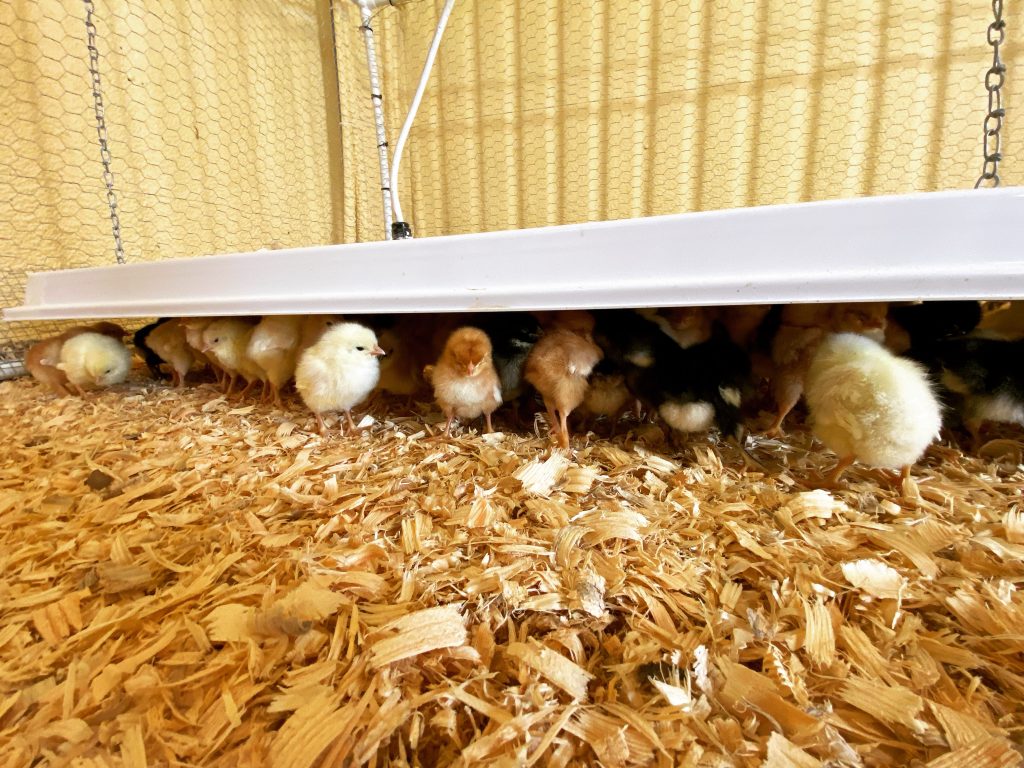
“Why sell the egg when you can sell the joy of the entire factory,” Corey said. “I just get so much more happiness from raising a chick from when it’s little bitty and only a day-old until all the way up to 18 weeks and handing it off to a family to produce food and entertainment.”
In its first year, Leird Farms sold 196 pullets, but in 2023, sales skyrocketed to 1,757 birds. For 2024, Corey expects to expand the business. One day he hopes to open a farm store at their home and use regenerative farm practices on the land while incorporating cows, pigs, goats, chickens and turkeys into rotational grazing.
Although Corey has a full-time job as a licensed clinical social worker intern, he loves the chicken business and receives gratification from his hobby that has blown up overnight.
“What I am most shocked about during our journey is the outpouring of support from our customers and how grateful they are having a locally sourced farm to pick up chickens,” he said.
Nice little nest egg
The pullet raising season runs from January to October, and in the off months they take a break, clean, sanitize and repair the brooders and equipment.
“In the spring and summer, we will have between 800 and 1,200 chickens at any point,” Corey said. “In the off season we’ll have about 300 chickens on site.”
Although he started out with his 60 chicks in a barn with a makeshift brooder, Corey had to adapt if he wanted to raise more chicks for his customers. He expanded and moved the birds to an 800-chick brooder house with heating plates and bell waterers before they are eventually transferred to a custom-built chicken tractor, also known as a chicken sled.
Moveable coop
This is a moveable chicken coop that allows Corey to relocate each pen of pullets to a new area every day, providing grass for them to forage and protection from predators. This method also makes for a cleaner environment for the chicks because manure does not have time to accumulate, which can spread disease.
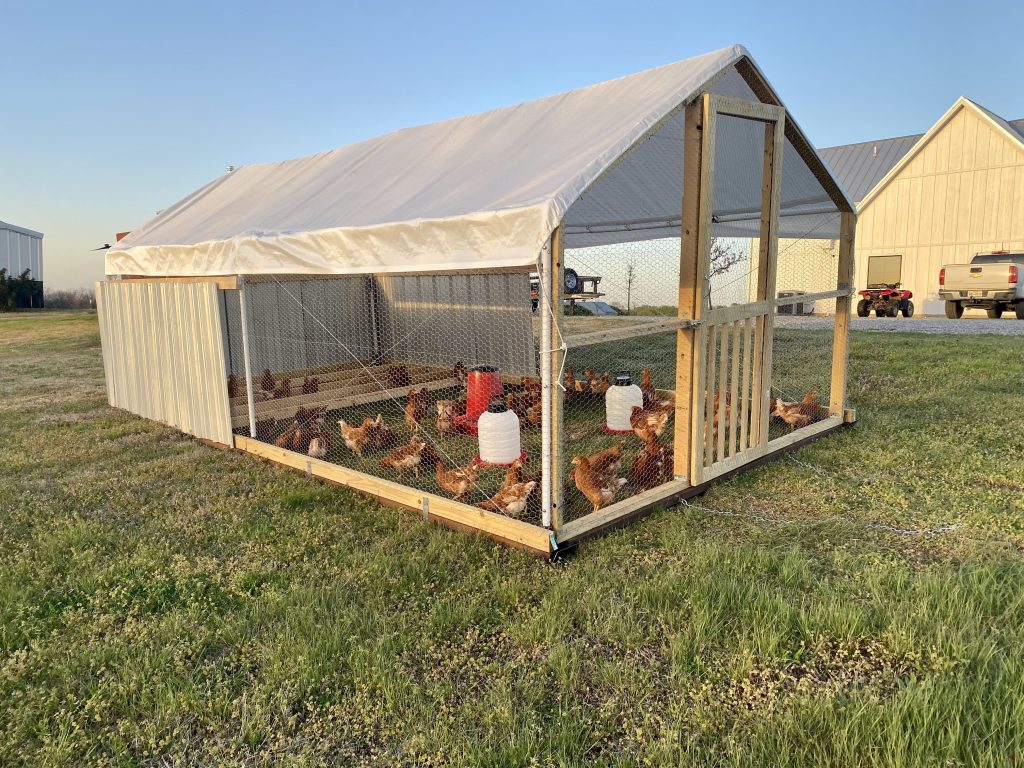
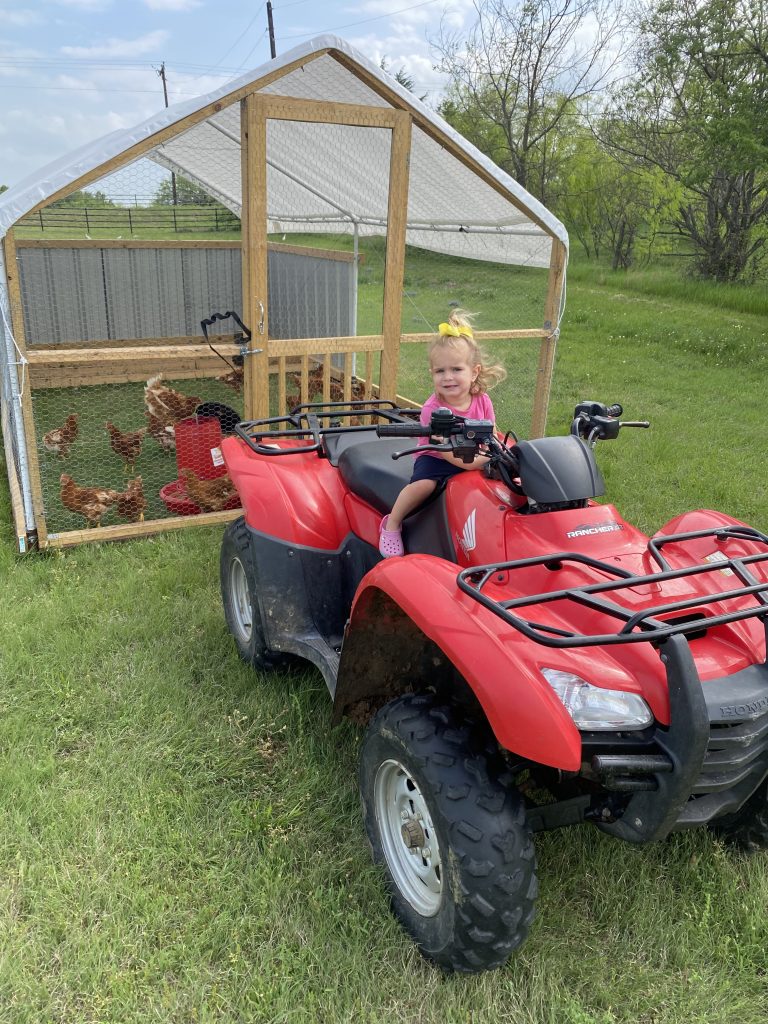
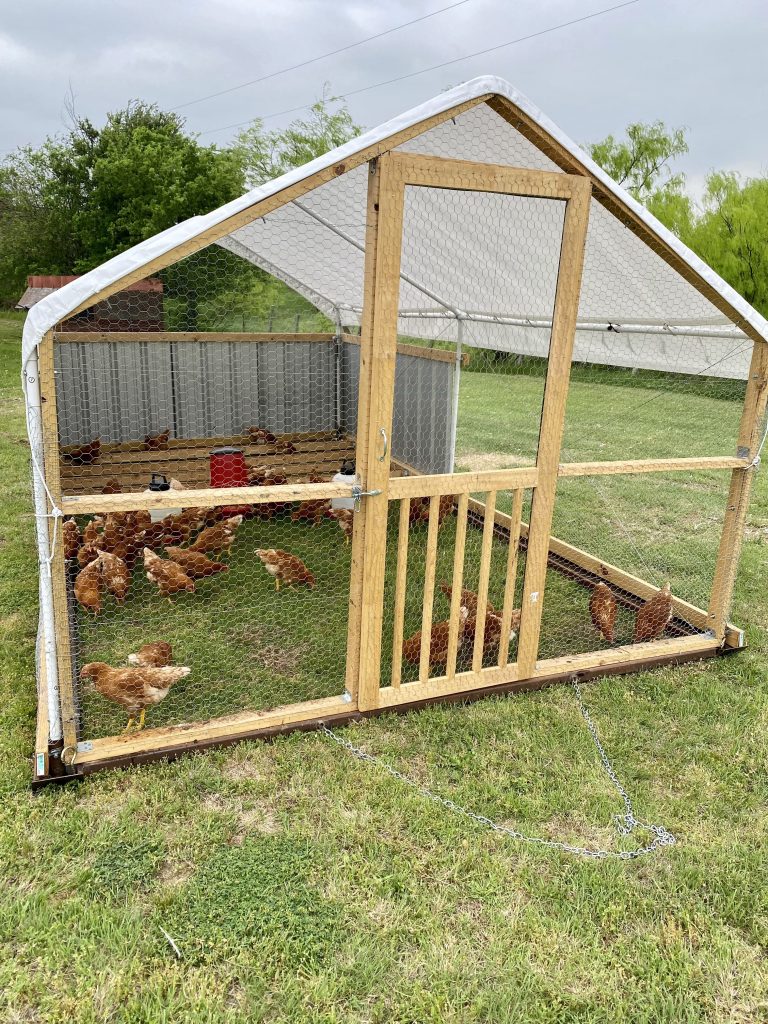
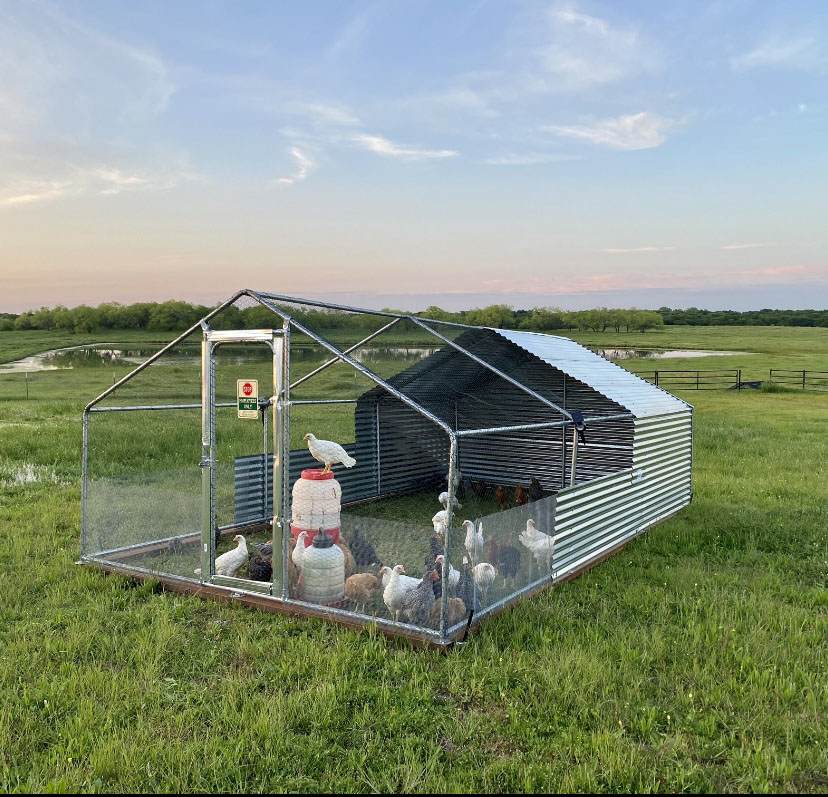
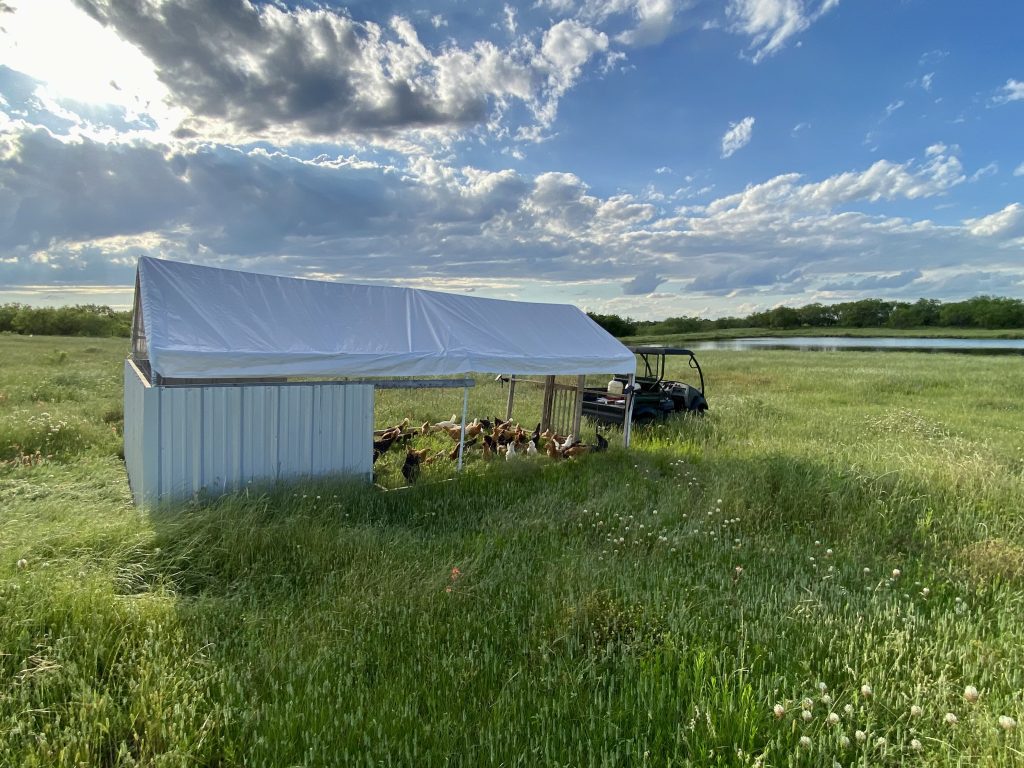
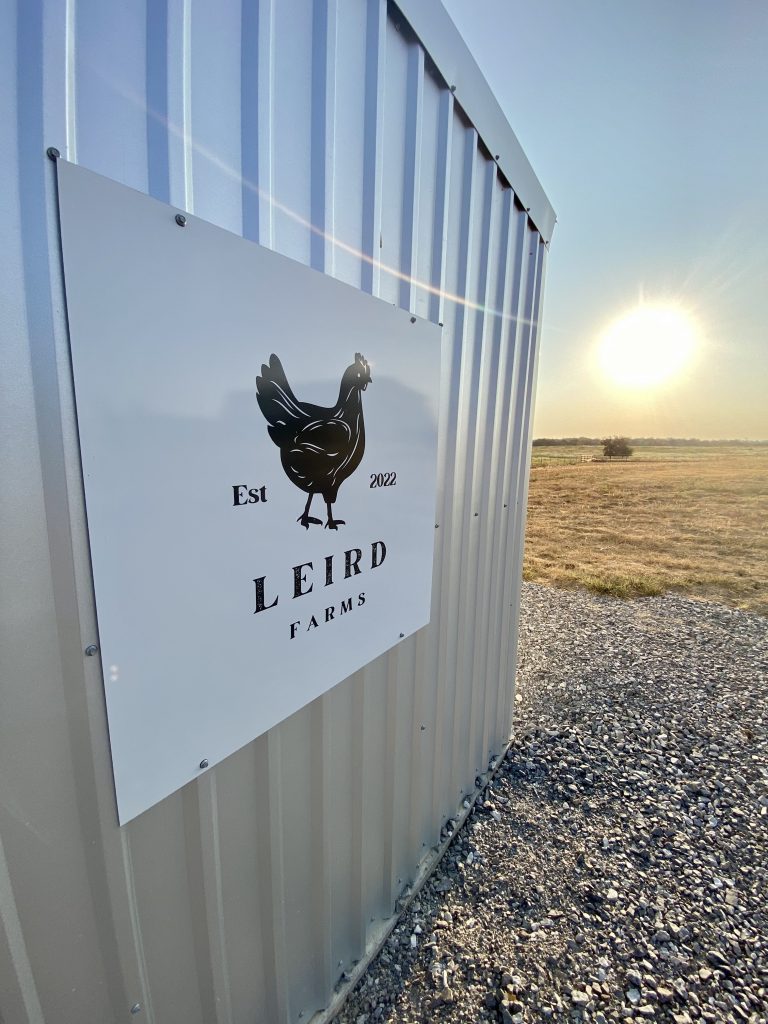
Since the business grew in a short period of time, Corey had to make more chicken sleds to accommodate all the pullets. He now has seven. In the above courtesy photo, the pullets love being able to free-range on grass with the predator protection from the chicken sled.
“One thing that amazed me is the design of our sleds and admiration folks have for them,” he said. “I built them for a healthy and safe environment for the girls to grow out on the field as we always had predator problems in the past with free range.”
The chicken sleds are so popular with pullet buyers, they often ask if they can buy one or if the blueprints are for sale so they can build their own. Similarly, customers also started requesting Corey’s custom chicken feed.
Originally, he was purchasing feed from local farm stores, but as the operation grew, he wanted to find a more complete ration that was also cost effective for his personal use. He reached out to a regional mill and it helped develop an appropriate starter feed.
Then customers started asking if they could purchase the feed for their newly bought pullets. After some consideration, he worked with the mill to develop a full line of rations for chickens and began selling the feed at Leird Farms. They now offer 16% layer, 17% all flock, 18% starter and 22% meat bird rations.
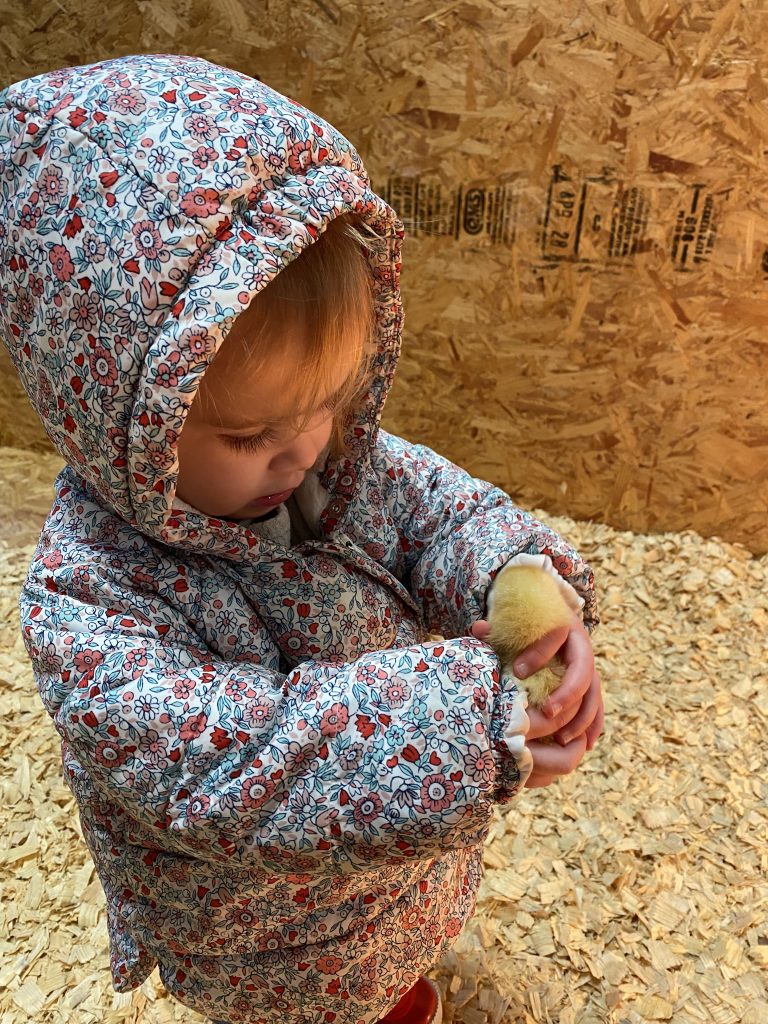
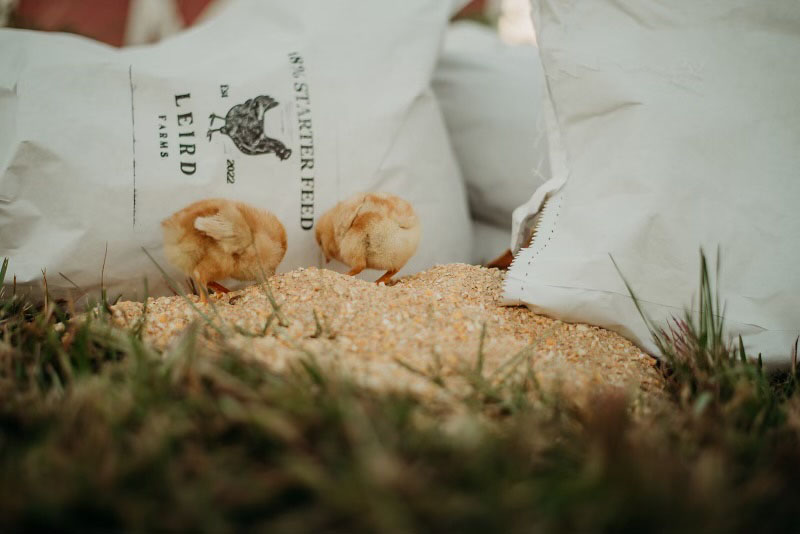
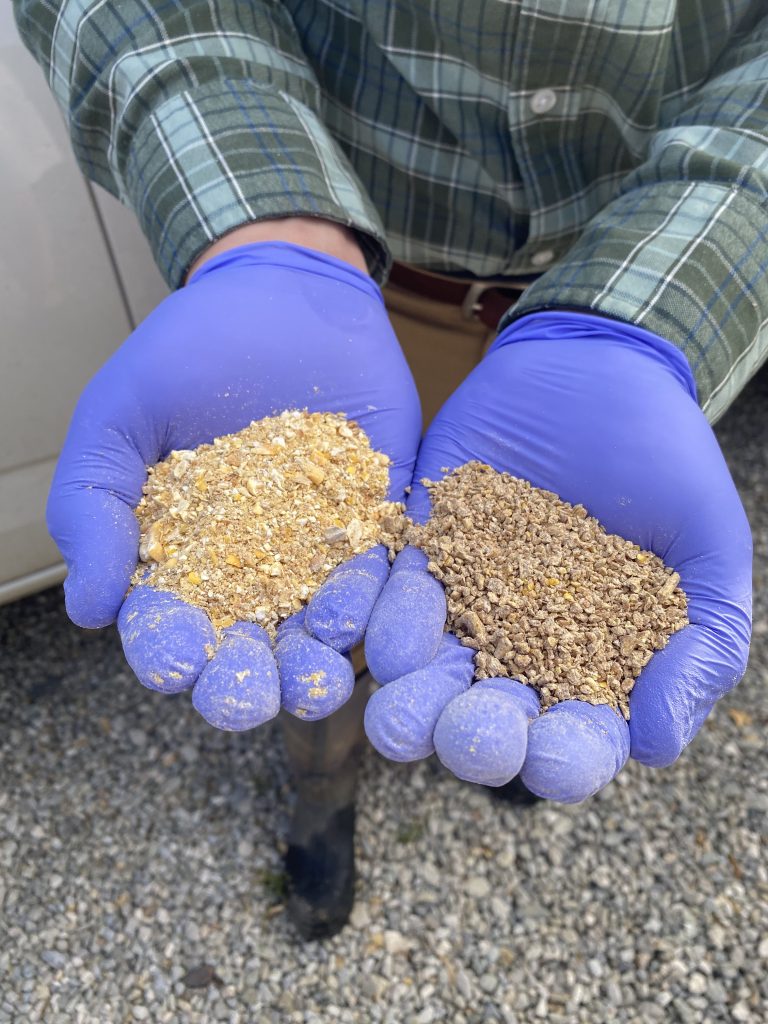
Little chicks, big business
The Leirds source their day-old chicks from reputable hatcheries where the birds are sexed. They only purchase female chicks as most backyard bird owners only want pullets since roosters are not needed for hens to lay eggs. Corey said the hatcheries usually have a 90% sex rate. However, every once in a while, a rooster will make it past the sexing process. Corey said some customers will buy the males so they can have fertilized eggs and hatch their own chicks. He said he has carried as many as 17 breeds and the prices range from $17 to $29 per bird, depending on age and breed.
“Everybody knows the saying, chicken math is real,” Corey joked. “You go pick up one or two and you leave with 10.”
Corey said his business model is extremely viable because lots of people want to jump into the backyard chicken sector, but there are also plenty of experienced chicken keepers who are continually adding to their flocks every year. Unfortunately for the people who own them, chickens do not always have a lot of longevity, thus they are always in demand.
“A sad part of the business is that chickens can be pretty vulnerable due to predators or health problems,” Corey explained.
For Leird Farms, stewardship and the health of the pullets has always been the key to their success and customers really appreciate their efforts.
“It never ceases to amaze me each time someone shows up and is overjoyed by the environment of our farm and cleanliness,” he said. “The funny thing is that’s just me. I couldn’t imagine anything otherwise for the girls, their health and for the customer. It’s something I’ve learned is increasingly important for the customer base.”
Additionally, when the Leirds sell a pullet, they are not just boxing up a hen and sending the client on their way. Corey takes the time to educate the chicken owners on how to care for their birds and answer any questions they have.
“There’s never a time when a customer shows up and I’m like here’s your chicken, bye,” he said. “It’s never an in-and-out purchase. It’s always a conversation and educating them and sometimes even me on things.”
For the Leird family, the pullet business has been an unexpected blessing that they do not expect to fly the coop anytime soon. To learn more about Leird Farms, follow them on social media.
Lacey Vilhauer can be reached at 620-227-1871 or [email protected].



